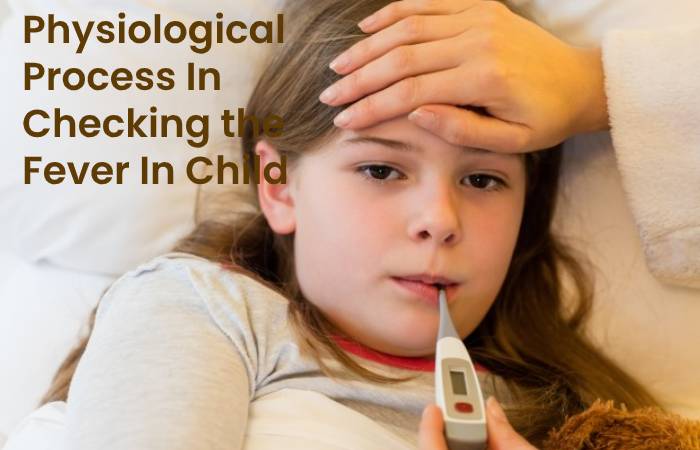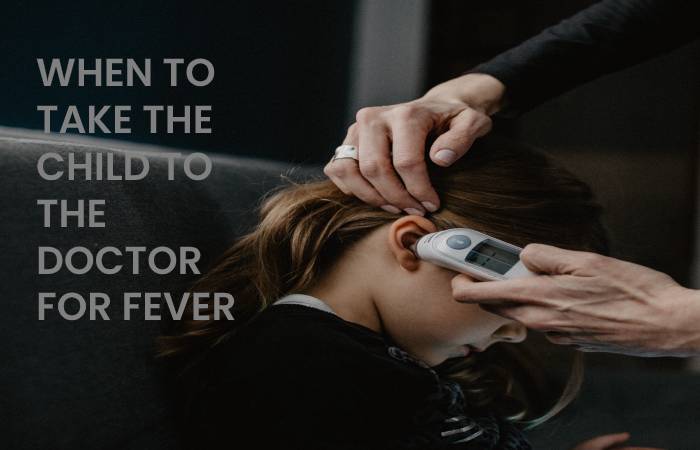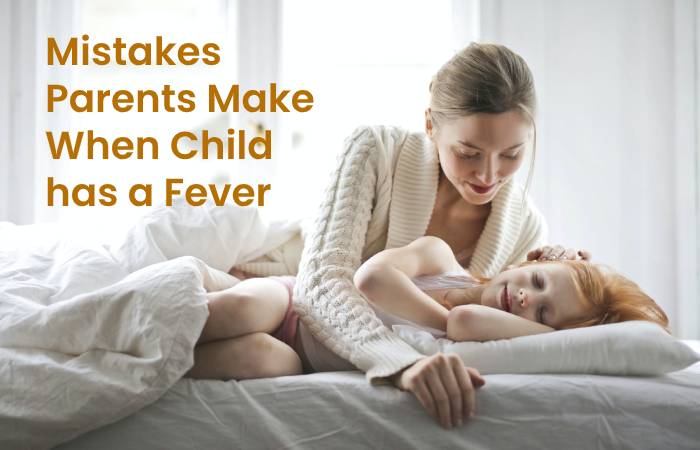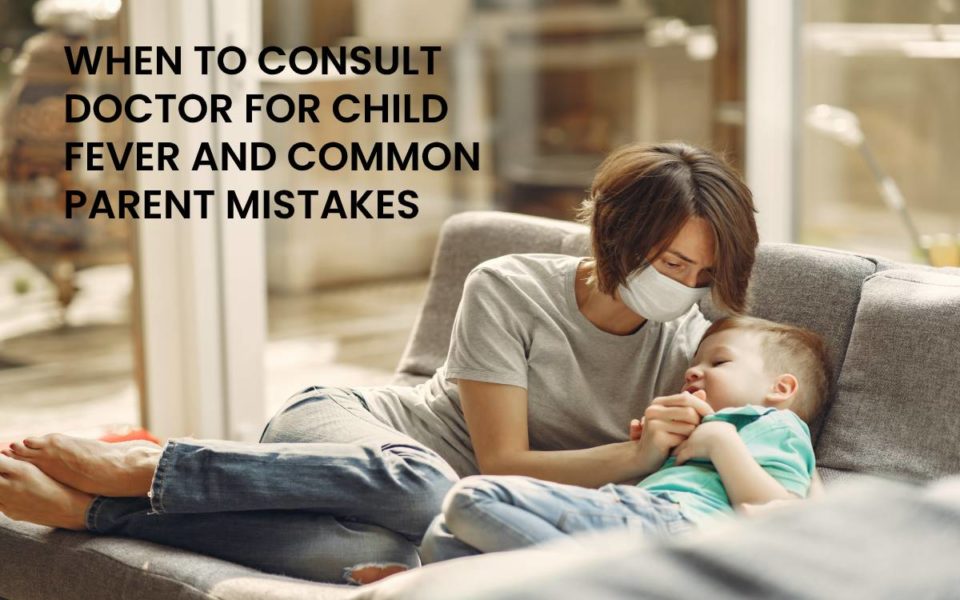CHILD FEVER is a cause of concern that is frequently seen in pediatric and emergency consultations and is that when the temperature rises in children, many parents wonder when to take the child to the doctor for a fever. However, in most cases, it is a natural process of the immune system, based on fighting defenses against mild viral or bacterial diseases.
Table of Contents.
It should be seen as an “ally,” as pointed out by the Association of Pediatrics (AEP), which reminds us, that fever is a normal reaction of the body, generally causes in response to fight infection and activate body’s defenses.
Physiological Process In Checking the Child Fever
 It is a usual physiological process, which should not be afraid because it is not a disease in itself. However, a large part of parents experiences anxiety and concern when they do not know the cause of the rise in temperature, especially on keeping high too long.
It is a usual physiological process, which should not be afraid because it is not a disease in itself. However, a large part of parents experiences anxiety and concern when they do not know the cause of the rise in temperature, especially on keeping high too long.
From the AEP, remember that we will measure fever using a thermometer and not by touch. Thus, its consider that the child has a fever when his body temperature exceeds 38ºC in the rectum or 37.5ºC in the armpit, a lower temperature in these cases we would consider a low fever and, if the child is less than two years old, we will consult the doctor in all cases.
A moderate fever is estimated up to 39ºC, and if it goes above 39ºC, we speak of a high fever, always if it is measured from the armpit. In the case of high fever, experts remember that it must be borne in mind that it is not the same for an adult to reach or exceed that temperature as a child does. While in an adult going that temperature and feeling good is a chimera, it may be that the child remains quite savvy.
MOST COMMON CAUSES OF CHILD FEVER
One of the big questions is what makes a child fever. The truth is that the causes are innumerable, common viral infections are the most frequent, although it can also be of bacterial origin. However, only a doctor can diagnose the source of this symptom precisely.
There is another reason that is it occurs mainly in winter, especially in epidemic periods, due to the fear that the child will constipate. It is the overcoat, which causes an increase in body temperature that can easily mistaken for fever. What they must do as parents before being alarmed is to unzip the child and retake his temperature.
WHEN TO TAKE THE CHILD TO THE DOCTOR FOR FEVER
 The most important thing is to carefully observe the symptoms that the child presents if he is happy, eats well and drinks plenty of liquids, there is no need to worry, if his health dint gets better or does not improve in 2-3 days, then he should go to the doctor. then it is important to take baby fever medication for him.
The most important thing is to carefully observe the symptoms that the child presents if he is happy, eats well and drinks plenty of liquids, there is no need to worry, if his health dint gets better or does not improve in 2-3 days, then he should go to the doctor. then it is important to take baby fever medication for him.
In this case, as we have previously mentioned, children under two years of age are exempt from the said premise, who should go to the pediatrician as soon as possible at the time the fever appears.
however, other times, when it is higher than usual or in infectious processes, it is necessary to go to the best pediatric clinic to indicate that it is most convenient.
To lower the temperature, it is also possible to administer a fever medication. In addition, it recommends the intake of abundant liquids, damp cloths on the forehead (at room temperature, never too cold, or with ice), as well as baths in warm water for 15 or 20 minutes.
When is it necessary to go to the pediatrician?
Experts recommend consulting the pediatrician if the child is under two years old (especially under three months). If the child is dull and sleepy. If you are irritable, have a severe headache and vomit, have trouble breathing, or have a seizure.
It is also essential to consult if the child has red dots (cherry color) or black spots on the skin, if he has a neurological disease, has a fever greater than 40ºC, or rage that does not subside despite treatment with antipyretics or lasts more than 48- 72 hours
Mistakes Parents Make When Child has a Fever
Does it scare you when your child Dull?
A fever is synonymous with infection and not a disease, says Felipe González, a doctor at the Gregorio Mararón Hospital in Madrid.
The child care expert also indicates that a child is determined to have a fever when its temperature is 38 degrees Celsius, -100 degrees Fahrenheit – thereafter, nothing more.
When you notice that your child is down, not wanting to run and play as he usually does and also has temperature, avoids making these below mention typical mistakes that parents make when our little one has a fever.
 The List of Mistakes are Below:
The List of Mistakes are Below:
- Don‘t skimp: Moms and dads usually measure fever by hand. Do not do it anymore! Always use the thermometer.
- Take the fever correctly: Child temperature should take under their armpits, but this practice marks half a degree more. Do it rectally to make it more correct.
- If you notice that your child has cold feet and hands from being over 38 degrees, NEVER shelter him. It is advisable to put light clothing on it so that its extremities should expose. This way, you will lower the fever!
- Never take a water bath: Contrasting water with temperature could cause your baby to have a seizure. If you decide that you need a bath, it is best to use warm water for less than 20 minutes.
- Be careful with compresses !: Never put cold water compresses on your hands or feet. If you choose this option, they have to be with lukewarm water.
- Do not give aspirin: Follow the instructions of your pediatrician. Possibly it will indicate that the best is paracetamol or ibuprofen. Consult your doctor before self-medicating your little one!
- Don‘t self-medicate with antibiotics: If you don’t know, don’t experiment. Much less with your baby!
- Be careful: Do not skip the indicated hours to give the antipathy or antibiotic. We have to continue the course of medicine even if the child looks to be fine.
- Don’t force a child: If he doesn’t want to drink liquids, don’t make him. Of course, keep in mind that you should not stop taking them to reward sweating. We have to be careful not to get child dehydrated.
- Do not force a child to eat: Babies and children alike happen to us. When we are sick, the desire to eat disappears. Don’t force him to eat if he or she doesn’t want to.
- Do not force a child to be in bed: Do not limit him to just being in bed. The kids are very dynamic and need to move.


